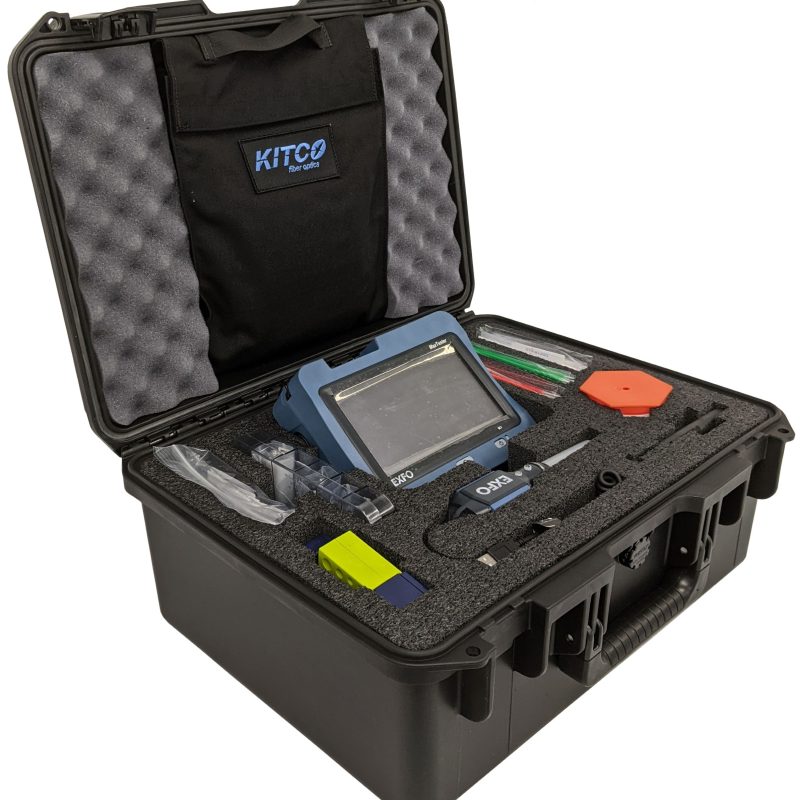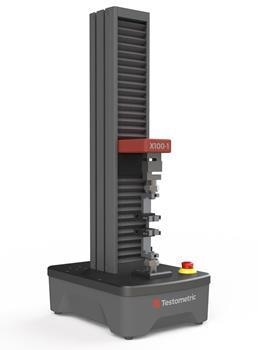Improve your inspection process with an automated optical measurement system
Improve your inspection process with an automated optical measurement system
Blog Article
A Comprehensive Overview to Optical Measurement System for Fiber Analysis
When it pertains to fiber evaluation, understanding optical measurement systems is essential for evaluating performance and guaranteeing top quality. You'll explore vital techniques like interferometry and spectroscopy, which help you determine vital parameters. There's more to it than simply these approaches; mastering attenuation dimension strategies can considerably affect your network's efficiency. As you browse through this guide, you'll reveal insights that can change your strategy to optical fiber.
Recognizing Optical Measurement Systems
When you discover optical measurement systems, you'll find they're important for evaluating fibers with accuracy. These systems make use of light to analyze various features of fibers, consisting of size, refractive index, and harmony. By using methods like interferometry and spectroscopy, you can gain useful understandings right into the fiber's properties.You'll find that these systems are created to minimize mistakes and enhance accuracy, ensuring dependable data for your analysis. Different configurations, such as single-mode and multi-mode systems, satisfy particular fiber kinds, permitting you to select the best suitable for your needs.Moreover, the combination of sophisticated software program devices helps you translate the information successfully, making it less complicated to determine any type of inconsistencies or flaws. As you examine deeper right into these dimension systems, you'll appreciate just how they improve the logical procedure and boost the overall top quality of fiber production and screening.
Key Criteria for Fiber Analysis
Trick parameters for fiber analysis play a vital duty in determining the quality and performance of fiber optics. When you evaluate a fiber, you'll wish to concentrate on attributes such as depletion, transmission capacity, and modal diffusion. Depletion gauges the loss of signal stamina as light travels through the fiber. A reduced depletion worth suggests better top quality and longer transmission distances - optical measurement system.Bandwidth refers to the data-carrying capacity of the fiber and is vital for high-speed communication. You'll require to evaluate the data transfer to guarantee it meets your application requirements. Modal dispersion, which arises from the different rates at which light trips via various modes in multimode fibers, affects signal quality
Techniques for Depletion Measurement

Data transfer and Its Influence On Efficiency
Comprehending data transfer is necessary for enhancing fiber efficiency, as it straight influences the quantity of information that can be transmitted over a network. Greater bandwidth suggests you can send even more details at the same time, allowing for faster communication and far better total performance. When you're collaborating with optical fibers, it's crucial to consider how bandwidth interacts with fiber features, such as core dimension and product properties.If the data transfer is limited, you might experience data loss or slower rates, impacting your applications. In addition, different sorts of fibers can sustain differing transmission capacity degrees, so it is very important to choose the best fiber for your certain needs.You must additionally remember that environmental aspects, like temperature and outside disturbance, can impact data transfer. By recognizing these facets, you can make educated choices to boost your fiber optic systems, guaranteeing trusted and reliable data transmission.
Refractive Index Measurement Techniques

Total Interior Representation
Complete interior reflection (TIR) works as a basic concept for gauging the refractive index of fibers. When light travels from a denser medium to a less thick one, it can only be completely mirrored if the angle of incidence exceeds a details threshold, known as the crucial angle. This sensation permits you to figure out the refractive index by analyzing the angles at which light reflects or refracts. By using a configuration that routes light right into a fiber and determines the resulting angles, you can calculate the refractive index accurately. Understanding TIR not only boosts your fiber evaluation but likewise boosts the layout and efficiency of optical systems. Leveraging TIR can lead to much more effective fiber-based applications.
Interferometric Techniques
Structure on the principles of overall interior reflection, interferometric strategies give a powerful means for determining the refractive index of fibers with high accuracy. These approaches make use of the interference patterns developed when light beams split and recombine after taking a trip various courses. You can utilize arrangements like the Michelson or Mach-Zehnder interferometer to examine stage changes triggered by changes in refractive index. By very carefully calibrating your system and evaluating the resulting fringes, you can figure out the refractive index with exceptional precision. It's important to preserve stable environmental conditions to decrease mistakes. With these strategies, you'll improve your understanding of fiber residential or commercial properties, bring about much better efficiency in various applications, from telecoms to sensor site link modern technology.
Modal Dispersion and Its Value
Modal diffusion describes the spreading of light pulses as they travel via a fiber, which can affect the general efficiency of the system. You'll see that this phenomenon can cause signify distortion, influencing data transmission prices and quality. Understanding its relevance is vital for enhancing fiber optic layouts.
Definition of Modal Diffusion
In fiber optics interactions, modal dispersion plays a substantial duty in identifying signal high quality and transmission speed. It takes place when various light settings take a trip at differing speeds via the fiber. Given that each mode has unique courses and attributes, they can arrive at the receiving end at various times. This time difference can bring about indicate dispersing and distortion, which can deteriorate the total efficiency of the interaction system. You might come across modal diffusion mainly in multimode fibers, where the several paths of light worsen the concern. Comprehending modal dispersion is necessary for enhancing fiber styles and guaranteeing that your communication systems operate effectively, keeping the integrity of the transmitted signals over longer ranges.
Results on Fiber Performance
Comprehending modal dispersion helps highlight its impacts on fiber performance. This phenomenon occurs when different modes of light travel at differing rates within the fiber, leading to signify spreading with time. As you evaluate fiber optics, you'll notice that increased modal dispersion can significantly weaken signal high quality, resulting in lowered bandwidth and longer transmission ranges. In sensible terms, this means your information can get here distorted or delayed, affecting general interaction efficiency. To reduce these results, you could take into consideration utilizing single-mode fibers, which decrease modal dispersion. By selecting the appropriate browse around this site fiber kind and recognizing exactly how modal dispersion affects efficiency, you can improve transmission high quality and warranty dependable data transfer in your optical measurement systems.
Tools and Technologies for Optical Measurements
When it involves optical measurements, numerous ingenious devices and innovations go to your disposal to improve fiber analysis. You'll locate fiber optic testers, which assess signal quality and efficiency, vital for maintaining excellent network effectiveness. Optical time-domain reflectometers (OTDRs) are vital for situating mistakes and measuring loss over ranges, offering thorough insights into fiber stability. Additionally, spectrometers can evaluate light ranges, aiding you identify product homes and composition.Don' t neglect the relevance of imaging systems, like digital microscopic lens, that allow you to aesthetically inspect fiber surfaces for defects. Consider utilizing polarization analyzers to gauge stress and anxiety click this and pressure in fibers, which is essential for recognizing their habits under various problems. By leveraging these tools and technologies, you can considerably improve your fiber analysis processes, guaranteeing reliability and high efficiency in your optical networks.
Regularly Asked Questions
What Are the Prices Connected With Optical Measurement Systems?
The expenses connected with optical measurement systems can vary greatly. You'll need to review devices rates, upkeep fees, software licenses, and prospective training expenditures. Budgeting thoroughly will help you prevent unanticipated economic obstacles down the line.

Exactly How Commonly Should Fiber Evaluation Be Carried Out?
You must do fiber analysis consistently, normally every 6 months or after substantial changes in the setting (fiber measurement). This ensures ideal efficiency and aids recognize possible problems prior to they influence your system's effectiveness and reliability
Can Optical Measurement Equipments Be Adjusted in the house?
Yes, you can adjust optical measurement systems in your home, yet it requires precision. Make particular you comply with the maker's guidelines, make use of appropriate calibration standards, and verify your results to guarantee precision in your dimensions.
What Industries Generally Utilize Optical Measurement Solutions?
You'll locate optical measurement systems extensively made use of in markets like telecommunications, production, health care, and study. They're essential for quality assurance, fiber evaluation, and making certain specific dimensions in different applications, boosting efficiency and precision throughout industries.
Are There Any Safety Worry About Optical Measurement Systems?
Yes, there are safety interest in optical measurement systems. You need to constantly put on safety eyewear to secure your eyes from intense lights and assurance appropriate training to take care of equipment safely and prevent accidents.
Report this page